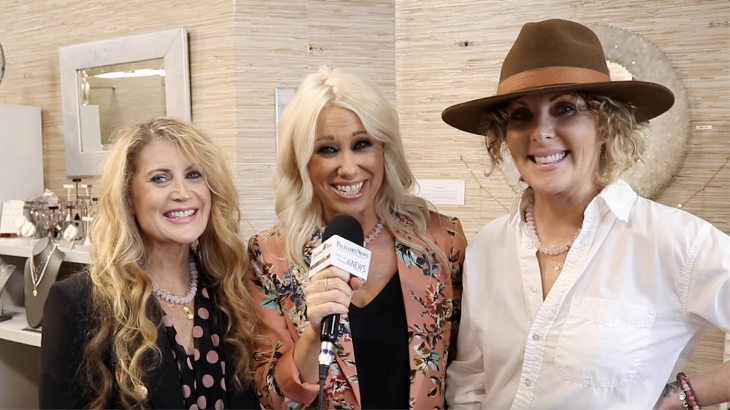The Millennial generation’s characteristics — people born between 1981 and 1996 — are reasonably straightforward. They’re confident with technology, having been around since the cellphone’s popularization and the internet’s development. They’re nostalgic for “the good old days” (aren’t we all?) when they played outside until the street lights came on and watched Saturday morning cartoons. They are careful with personal data and still hopeful that the environment can be saved.
How they spend their time is also relatively easy to predict, and it makes a lot of sense when you consider the events they’ve experienced and the societal changes they’ve lived through (9/11, the invasions of Iraq and Ukraine, COVID, the Trump Presidency to name a few.) Suppose you run a business selling a product or service that may suit millennials. In that case, it’s imperative to understand their habits to tailor your business and offering to serve your client base. Let’s explore the habits and preferences of the millennial generation.
Image by Pixabay via Pexels
Defining Millennials
Here are a few things we know to be true of the millennial generation. They are influential in the workplace; more millennials than ever are now a part of the full-time workplace (79%), which means they have a loud voice. They’re the podcast generation: the age group tuning in for the longest and finding the most brands and information when they listen. Work-life balance is essential for them: they learned from their parents that all work and no play makes for an unhappy life. They are now considered middle-aged: the youngest millennials turn 27 this year, and the oldest turn 42. They’re the internet generation, the crash test dummies for the first smartphones, the people who take photos of their food before eating it, and those for whom avocado is a diet staple.
No Time To Waste
Millennials have learned from the generations before them that time is valuable. Whether it’s their free time or the hours they dedicate to work, they have a clear-cut way of ensuring they’re getting things done while also making time to rest.
At Work
In the workplace, millennials are generally efficient employees who don’t like to be micromanaged. Though many are in permanent employment positions, that doesn’t mean they do things like their parents and grandparents do. They dedicate their time to bettering themselves, working smarter rather than harder, and ensuring they complete their jobs successfully by the deadline — it’s a big deal to care this much when compared to Gen Z employees. Many millennials are in hybrid or WFH positions, meaning that they maximize their time usage (saving time on a commute and being able to get small tasks done around the house) while still performing well. Since millennials now pay, on average, 100% more for their homes than their grandparents did, maximizing their efficiency in the workplace is a vital part of making their lives work well. As the best-educated generation in history, they know their stuff.
Image by Liza Summer via Pexels
At Leisure
The millennial generation understands that to be effective at work, they must find time to rest and play. Their free time is divided between their hobbies, spending time with friends and family, and doing things that replenish their batteries. It’s a common misconception that millennials are materialistic since they do so much online shopping. Instead of valuing possessions above all else, they value experiences. They spend much time traveling (if their finances allow) to see new places and experience new cultures. They also like eating out at restaurants to experience new cuisines and attend live events like concerts or comedy.
Social media and the internet are a massive part of millennial life, so it’s natural that they spend a large portion of time scrolling through their Instagrams or looking for information or products online. The average millennial spends around 2 hours and 38 minutes on their social networks daily. 56% of millennials report that, since the COVID pandemic, they’ve been spending more time on their favorite social media apps. Social media and internet usage are for entertainment, keeping users connected to the world around them and friends living in other countries, and sometimes even for work — for instance, entrepreneurs, musicians, artists, and other creatives. If you’re a business looking to cater to this market, it’s worth ensuring that you have a strong online presence on social media.
Staying at home now takes up a far more significant portion of a millennial’s leisure time than before the COVID pandemic. While millennials like to eat out and entertain themselves (alone or with friends and family) out of doors as often as possible, the rise in cost led many millennials to choose at-home dining and entertainment more than they did before. One of the few gifts the pandemic gave us is insight into how to appreciate our homes and entertain ourselves. Since the housing market is so much more expensive now than when boomers and Gen Xs were buying homes, it makes sense that millennials want to get their money’s worth.
Image by Cottonbro Studio via Pexels
Why Is Understanding All This So Important?
Understanding how a given demographic thinks and how they spend their time and money is invaluable for businesses that wish to target that demographic. Knowing millennials spend more time at home than ever means that companies selling home comforts can target their marketing campaigns at millennials since they will need the products, and sales will be high. Knowing millennials spend a lot of time online and on social media means that social media advertising will be a great tactic since they’ll have eyes on posts and adverts for just under three hours a day. If you understand your demographic, it’s easier to offer them the products they need and predict how sales will go. Brand alignment is essential if you’re going to do well as a business person. It’s also crucial to ensure your target demographic is as happy as possible with the products or services they’re receiving.
The millennial generation differs from the generations before and after in several obvious and some subtle ways. Understanding what they value makes it easy to understand how they spend their time, and this helps businesses market themselves to a generation with a decent disposable income.
























